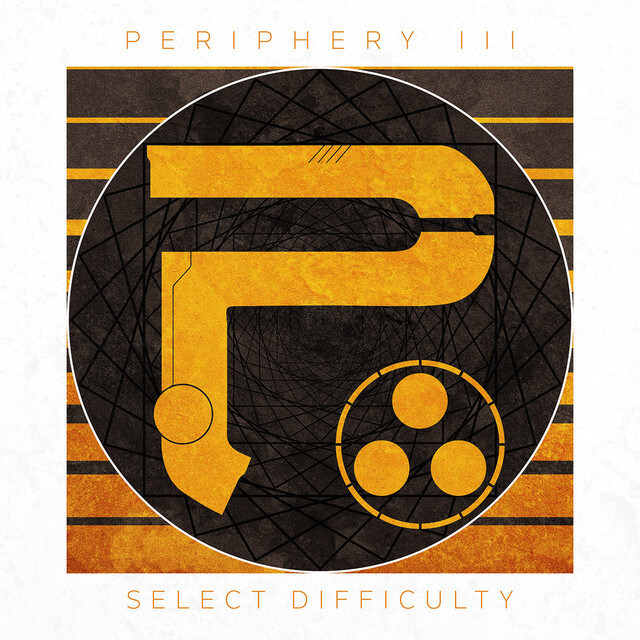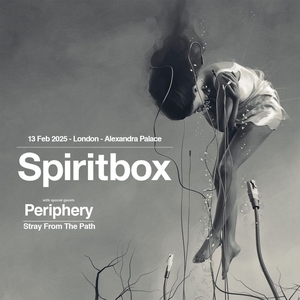By Angry Metal Guy
Written By: Nameless_n00b_604 In the canon of life-ruining short stories, somewhere amidst Ellison’s “I Have No Mouth and Must Scream” and Jackson’s “The Lottery,” you’ll find Stephen King’s “The Jaunt.” In summary: Family sets out to teleport to Mars on The Jaunt, Dad tells kids that taking The Jaunt while unanesthetized makes you go crazy, Boy takes the Jaunt unanesthetized, Boy experiences time “longer than you think!”, Boy goes crazy and attempts disposing of own eyes by way of own fingers. It’s a story so metal, it begs for musical adaptation. UK-based progressive metallers Ophelion have accepted the challenge in their five-track self-released debut. Undeniably bold, are they up to adapting such a stark, deceptively simple tale?
The Jaunt progs hard. Opeth’s shadow looms large, particularly heavy on “Voice of Thought” through haunting key melodies, breathy crooning, and crushing growls by Marcello Vieira (Braveride) and Gabriel Riccio, respectively. Guitarist/bassist/co-songwriter Shaun Eggleston and drummer Travis Orbin (Darkest Hour, ex-Periphery) groove over odd, shifting time signatures while co-songwriter Steven Eggleston’s synthesizers primarily lay down chord beds (“Transference”) and create atmosphere (“Emergence”). The mix is loud and busy, but the musicianship is on par with the luminaries of prog metal, dishing out water-tight grooves (“Artefact,” “Voice of Thought”), masterful soloing, and longform compositions that weave through bridge after copious bridge. As such, if you’re allergic to any of the developments in progressive metal from the past thirty years, The Jaunt is liable to give you a rash, as Ophelion strikes them all.1
But Ophelion has the vision to appeal to more than prog nerds. Chugs are ubiquitous across The Jaunt, but varied rhythms keep things groovy rather than monotonous alongside embellishment-rich riffage (“Transference” at 1:10, “Exodus” at 5:07). Fretboard warrior Shaun Eggleston weaves Petrucciesque solos on “Exodus” but also conjures thrash nastiness on “Artefact” (3:37), sounding like Megadeth trying southern rock. Vieira sports a reedy high register and the Euro-power proclivity to over-enunciate and under-pronounce, but his gravitas is undeniably infectious. Riccio’s growls ooze spit-and-vinegar, with instrumentation turning chromatic and dissonant with his appearances (“Voice of Thought,” “Artefact”). A lot happens on The Jaunt; sometimes too much, too rapidly. With so many brief movements throughout, Ophelion is the antimatter of atmoblack metal—doing too much for not long enough—and the music often doesn’t repeat enough to nestle into the listener’s brain.2 Regardless, Ophelion’s diverse virtuosity should please most metalheads.
What’s most impressive, however, is how everything coalesces into storytelling. Departing from King, Ophelion enters The Jaunt through an unnamed traveler (“Transference”), with Vieira portraying him enduring bodyless consciousness (“Voice of Thought”) before watching his thoughts manifest into civilizations “Praying to the skies to a god who wants to die”3 (“Artefact”), creating the Jaunt themselves. Riccio plays the voice of the titular Jaunt, callously enlightening him that “As you watch your body / Enter the machine / All happens once again / The universe exists recursively” (“Exodus”). Like King’s prose, the lyricism—if somewhat on-the-nose—is concisely vivid.
Songwriting sells the lyrics through film score-level symbiosis between music and narrative. The solos in “Artefact” become progressively unhinged, reflecting the traveler’s increasing anguish. The spacey “Emergence” conveys the emptiness between losing control (“Voice of Thought”) and becoming omniscient (“Artefact”). Finally, concluding “Exodus”—depicting the traveler’s release from the Jaunt and subsequent self-blinding—sees a quiet, eerie key change as Ophelion rebuilds momentum to crescendo into a final solo before leaving a lone acoustic guitar, recalling the acoustic “Transference” intro, evoking the cursed recursive universe.4 Ophelion didn’t just use King’s story as a backdrop; the narrative is essential in enjoying The Jaunt as art.
Ophelion’s The Jaunt brushes the hem of greatness. With a more settled approach to songwriting—letting hooks sink in—Ophelion could be lethal. Though sometimes too frenetic, The Jaunt nevertheless abounds with excellent ideas, musicianship, and narrative, an easy pick for any prog fan and/or enemy of the “less is more” philosophy.5 Give The Jaunt a try. Just don’t hold your breath.
Rating: Very Good
DR: 8 | Review Format: 320 kb/s mp3
Label: Self-Released
Website: ophelionmusic.bandcamp.com
Releases Worldwide: June 23rd, 2025
#2025 #35 #Braveride #BritishMetal #DarkestHour #Jun25 #Megadeth #Opeth #Ophelion #Periphery #ProgressiveMetal #Review #Reviews #SelfRelase #TheJaunt


